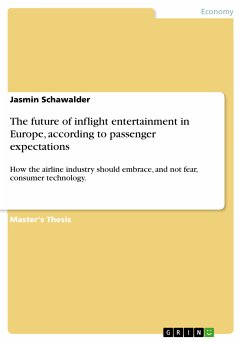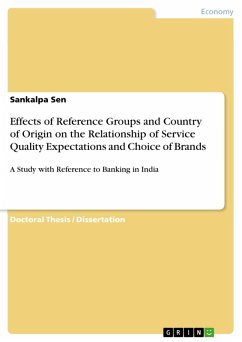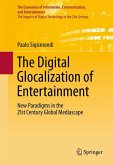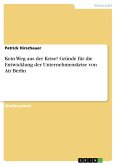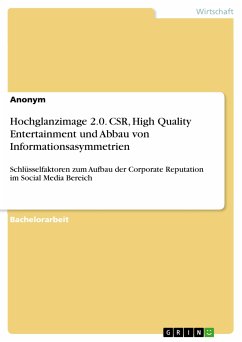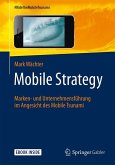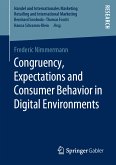Master's Thesis from the year 2013 in the subject Business economics - Offline Marketing and Online Marketing, grade: 19/20, Grenoble Ecole de Management, course: MBA - Technology Marketing, language: English, abstract: Consumerisation - passengers toting their tablets, laptops, smartphones and e-readers on planes - has forced airlines to re-think. Should they continue to invest heavily in Inflight Entertainment (IFE) hardware, or concentrate on offering WIFI and power in the cabin? This paper defines IFE from a consumer perspective. Several consumer satisfaction methodologies were evaluated and the Kano approach chosen. The latter categorises alternatives of a product or service, in this case IFE, in must-be, attractive and indifferent elements. A for Europe representative online survey revealed movies and power to be must, TV and WIFI to be attractive and the rest, e-books, music, games and duty free onboard, to be indifferent elements of IFE. The majority of people indicated they would pay for movies and WIFI but not for power supply, TV or other content. Differently said, content-wise passengers only insisted in the supply of movies, for the rest they expected the airline to provide Internet and power so they could get the content themselves. Further, the author analysed sub-groups, people within the sample with mutual characteristics like gender, travel frequency or ownership of smart devices. So is music on a plane a must for women and owners of iPhones are more willing to pay for apps than others. Overall, country of residence, travel purpose (leisure or business) and flight duration (long vs. short haul) were the greatest dividers regarding IFE requirements. To answer the core question of how a future IFE should look, the author in argues that consumerisation means an enormous potential for airlines.
Dieser Download kann aus rechtlichen Gründen nur mit Rechnungsadresse in A, B, BG, CY, CZ, D, DK, EW, E, FIN, F, GR, HR, H, IRL, I, LT, L, LR, M, NL, PL, P, R, S, SLO, SK ausgeliefert werden.

